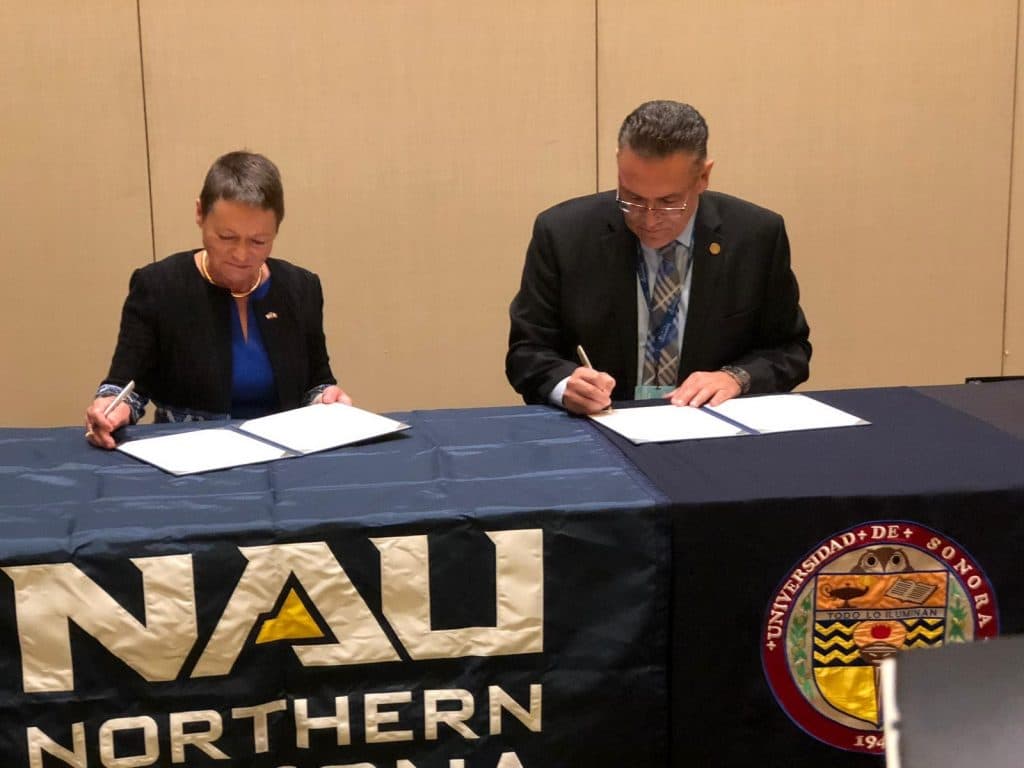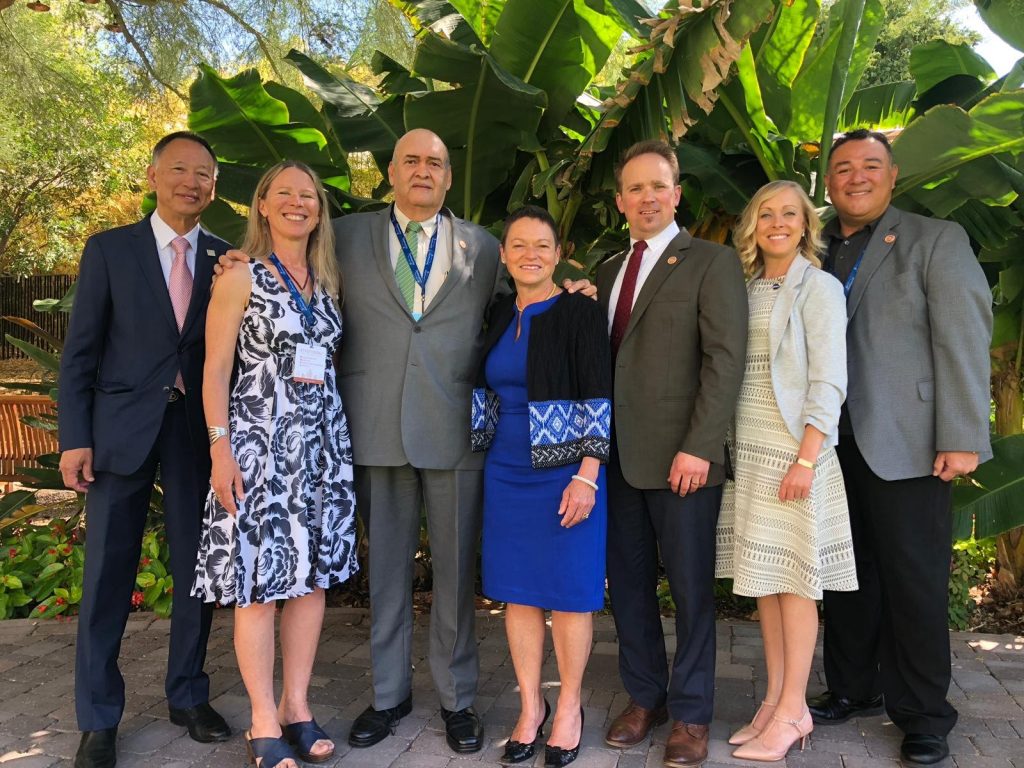July 24, 2019
President Rita Cheng and a delegation of NAU leaders attended the Arizona-Mexico Commission 60th Anniversary Summit in late June, discussing issues in higher education and globalization with their counterparts on both sides of the border.
While there, she met with Arizona Gov. Doug Ducey and Sonora State Gov. Claudia Pavlovich; participated in a higher education panel and signed a renewal agreement with a long-time Mexican partner institution.
At the summit, Cheng discussed NAU’s upcoming Leaders United for Positive Energy program, which is funded through the 100,000 Strong in the Americas Innovation Fund. The program will bring together 20 students and faculty from NAU, the Technological University of Hermosillo (UTH) and three Argentinian institutions to study ethical and sustainable solutions in the energy sector.
“We are thankful to the Arizona-Mexico Commission, along with nonprofit and industry partners, for their support and participation in this program,” she said. “We are excited to welcome the group to our campus, and to Arizona, this fall and look forward to seeing the impactful results that these interactions will yield.”
NAU also recently joined the Arizona-Sonora Interuniversity Alliance, which allows faculty members to participate in cross-border research teams, and has signed collaborative agreements with a number of institutions to increase study abroad and international research opportunities for students and faculty.
Cheng also signed a renewal to NAU’s collaborative academic agreement with Fernando Velazquez Contreras of Universidad de Sonora (UNISON). This agreement, which was originally signed in 2004, creates a pathway for meaningful faculty collaborations, involvement in UNISON’s summer research program and other programs in forestry, climate science, hotel and restaurant management, materials engineering, astronomy and others.
“NAU is deeply committed to collaborating with Sonora and Mexico as a whole,” Cheng said. “This is the time for universities, business, nonprofits and all sectors to increase collaboration with Mexico for the advancement of our communities. As educators, we have the capability and the responsibility to provide pathways for student success.”
Cheng was on a panel that discussed “Local Universities, Global Impact” with Robert Robbins, president of the University of Arizona. Julie Engel, president of the Greater Yuma Economic Development Corporation, moderated the panel. They discussed the role of Arizona’s universities as leaders in developing international relationships with Mexican institutions and the variety of initiatives that have been introduced.
Cheng touted NAU’s international resources, including a new division to the Center for International Education, which places specific focus on regions such as South Asia and Latin America. About 10 percent of students who went abroad in the last school year went to Mexico.

She also discussed the various partnerships in place that focus on preparing students to meet the demands of industry in a global workforce, such as the partnership with CETYS University in Mexicali. Students and faculty in international trade and commerce have been exchanging between the two universities for three years, and soon engineering teams from both schools will work together to collaborate on renewable energy solutions and the development of joint academic programming in areas like mechatronics, manufacturing and cyber systems. NAU Yuma has been critical in these partnerships, and administrators are working toward the creation of a 4+1 dual MGBA degree by spring 2020.
“It is important to recognize that the catalyst for any innovative program or initiative between institutions is the human relationships behind those efforts,” she said. “When we honor the human connection, we are able to not only produce more significant results, but we naturally prioritize social impact in our work because humanity is the focus. NAU is committed to working with our partners in Mexico to maintain and grow existing programs, identify new areas of collaboration and come together on issues that are of binational importance—consciously rooting ourselves in humanity as a core value, every step of the way.”



